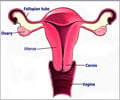Hormonal therapy for transsexual patients seeking treatment to change external characteristics to match internal image of themselves is safe and effective, a multicenter European study indicates.

Hormonal therapy involves large doses of male or female sex hormones, which has led to concern about its health effects. This study found that short-term hormonal therapy for transsexualism is effective and safe, with few side effects.
"Although transsexualism remains a rare diagnosis, the number of trans persons seeking hormonal or surgical treatment has drastically increased in recent years, making a detailed multicenter description on the effects of cross-sex hormonal treatment timely," said study lead author Katrien Wierckx, MD, an endocrinologist at Ghent University Hospital in Belgium. "Our study gives valuable information about the effects of drastic changes in sex steroids on glucose and lipid metabolism, cardiovascular and bone health, so that we can inform our future clients, their families and other caregivers more accurately on the desired effects, side effects and adverse events of cross-sex hormonal treatment."
The effects reported by males transitioning to female in this study included breast tenderness, hot flashes, emotional behavior, and decreased interest in sexual activity. In addition, male-to-female transsexuals had significantly increased fat tissue, and decreases in lean tissue and muscle.
Among females who were transitioning to male gender, effects included increased interest in sexual desire, greater variation in tone of voice. This group also exhibited significantly more acne and body hair, as well as increases in lean tissue and muscle, and decreases in fat tissue. No serious complications occurred in either group.
This multicenter study included 45 transsexual men and 42 transsexual women at four European centers in Ghent, Oslo, Amsterdam and Florence that specialize in transgender treatment.
Female-to-male transsexuals received a form of the male sex hormone testosterone. Male-to-female transsexuals received anti-androgen treatment in combination with a form of estrogen, which is the principal female sex hormone. Treatment was for 12 months.
Throughout the study, investigators measured participants' waist-to-hip ratio, blood pressure, and the percentages of fat and lean tissue mass. Follow-up was one year.
In addition to demonstrating the safety of hormonal treatment for transgender people, these findings can also help clarify its safety for other indications, according to Wierckx.
"Studies in transsexual persons generate knowledge on the similarities and differences between men and women," she said. "This is why some of our findings can be extrapolated to other, more common conditions that are associated with changes in sex steroid hormones, such as hyperandrogenism in women, for example, polycystic ovarian syndrome; or androgen deprivation therapy in men, for example, when undergoing prostate cancer treatment, or treatment for sex offenders."
The Special Research Fund of the Ghent University, the Flemish Research Fund, and the European Society of Sexual Medicine funded the study.
Source-Eurekalert











